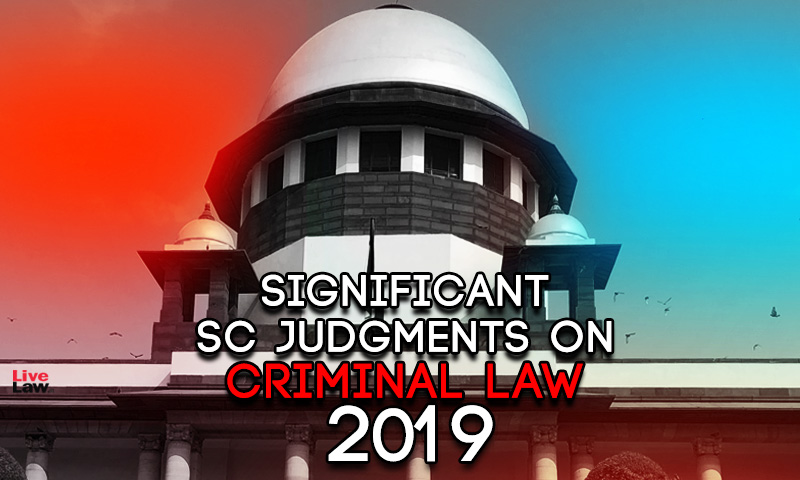- Home
- /
- Top Stories
- /
- 25 Important SC Judgments On...
25 Important SC Judgments On Criminal Law - 2019
Ashok Kini
26 Dec 2019 11:12 AM IST
Magistrate Can Invoke Power U/S 156(3) CrPC even at post-cognizance stage, SC says 43 Yr old precedent wrongly decidedVinubhai Haribhai Malaviya and others v The State of GujaratA three judge bench of the Supreme Court virtually overruled a 43 year old precedent and held that Magistrate can invoke power under section 156(3) of the Code of Criminal Procedure even at post-cognizance stage....
Next Story



